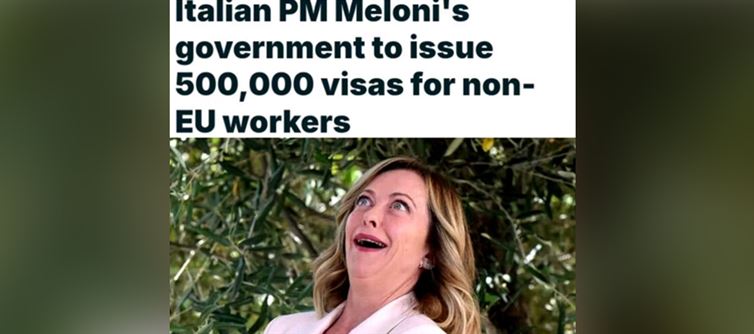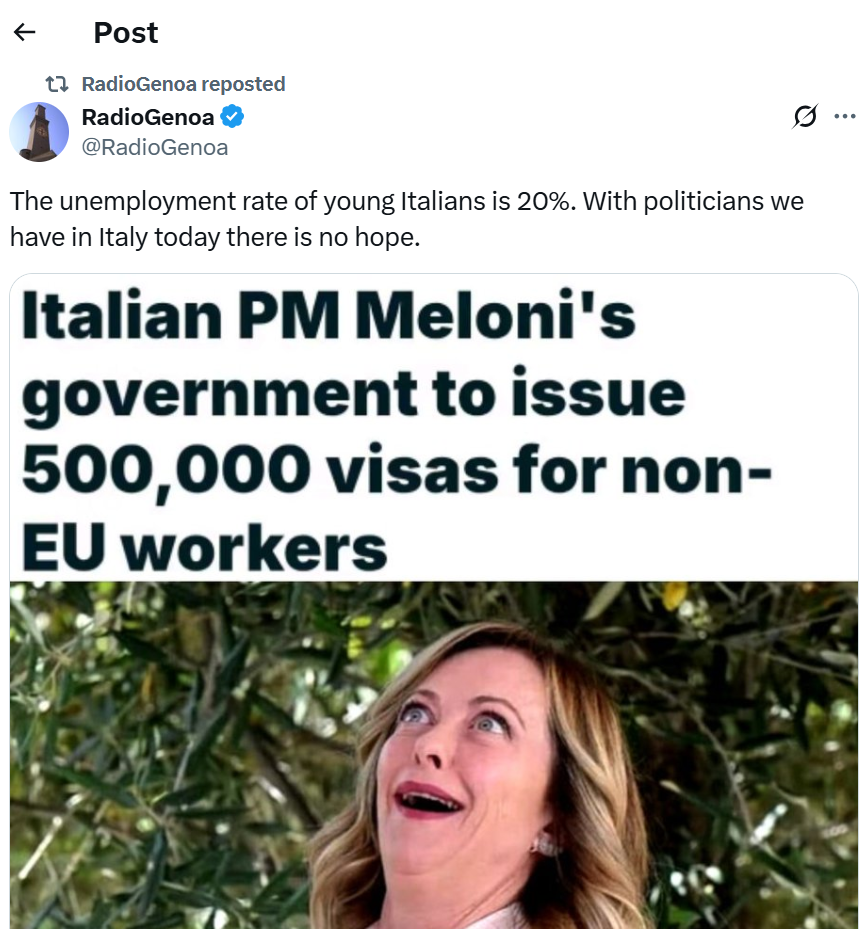
Italy’s decision to open its doors to non-EU workers comes amid a demographic crisis, with a shrinking native workforce and a need to sustain economic productivity. The agricultural sector, in particular, has long relied on foreign labor, and industry groups have welcomed the policy as a pragmatic step. However, the high youth unemployment rate—exacerbated by a protectionist labor market and regional disparities—has fueled resentment. Critics argue that prioritizing foreign workers over domestic job creation could deepen social inequalities and alienate a generation already facing bleak prospects.
 Meloni, leader of the right-wing Brothers of italy party, rose to power partly on a platform of reducing illegal immigration and prioritizing Italian citizens. This visa policy has thus been seen as a surprising pivot, prompting speculation about political pressures or economic necessities overriding her ideological stance. The exaggerated depiction in the image suggests a public perception of her as out of touch or insincere, a narrative that could impact her political capital as elections or policy reviews approach.
Meloni, leader of the right-wing Brothers of italy party, rose to power partly on a platform of reducing illegal immigration and prioritizing Italian citizens. This visa policy has thus been seen as a surprising pivot, prompting speculation about political pressures or economic necessities overriding her ideological stance. The exaggerated depiction in the image suggests a public perception of her as out of touch or insincere, a narrative that could impact her political capital as elections or policy reviews approach.The decision by PM Meloni’s government to issue 500,000 visas for non-EU workers represents a bold attempt to address Italy’s labor shortages, but it has opened a Pandora’s box of controversy. With youth unemployment at 20% and public trust in leadership waning, the policy risks being seen as a betrayal of electoral promises.




 click and follow Indiaherald WhatsApp channel
click and follow Indiaherald WhatsApp channel